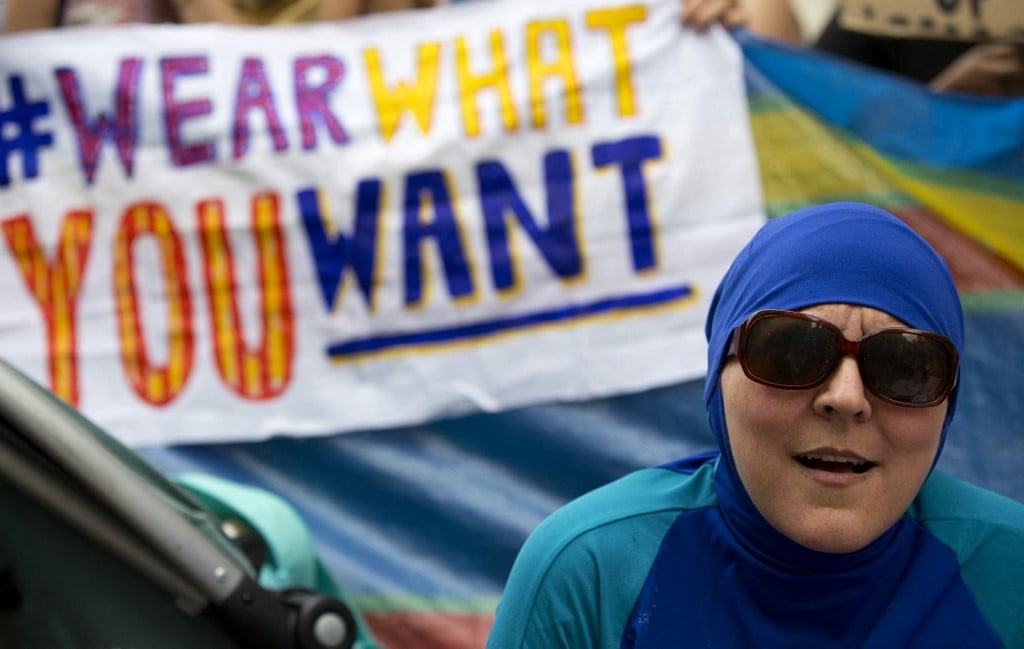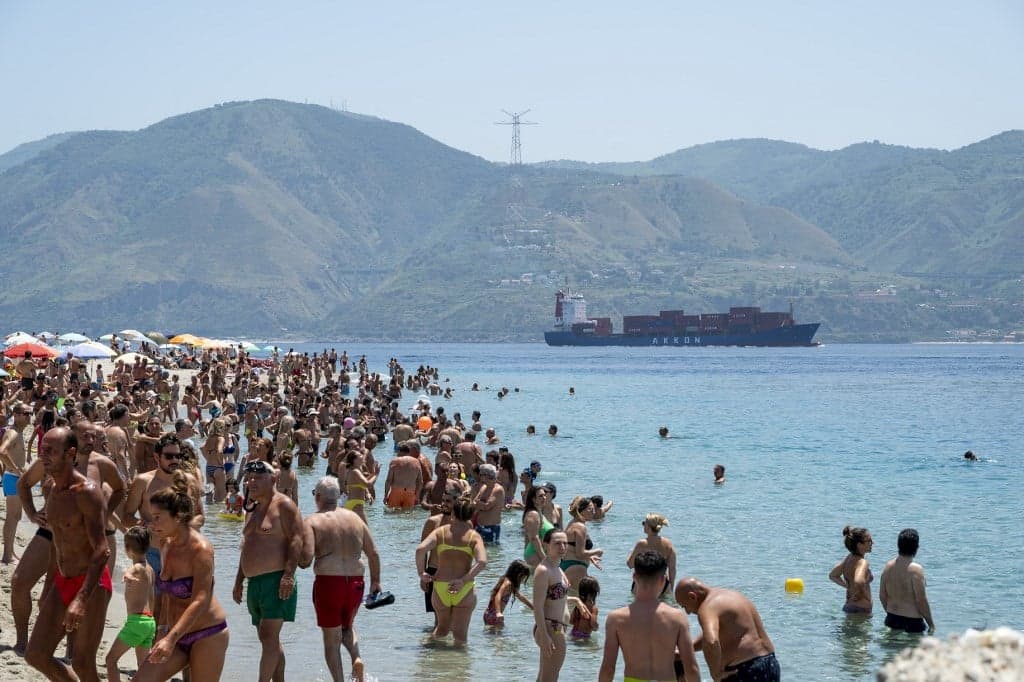Italy is known for having some of Europe’s stricter rules on covering up in public, with regular reports of outrage over nudity and revealing swimwear.
But on Wednesday, one politician from the nationalist League party in northern Italy sparked controversy by suggesting that Muslim beachgoers were instead covering themselves up too much.
“The behaviour of Muslim foreigners who habitually enter the water with their clothes on is unacceptable,” the mayor of Monfalcone in the Friuli Venezia Giulia region, Anna Maria Cisint, wrote in an open letter to the local Muslim community on Wednesday.
Bathing while covered up was causing “bewilderment” among other visitors at the nearby Marina Julia beach, she claimed, before suggesting that doing so was “dubious” in terms of “decorum and hygiene”.
The mayor appeared to be referring to bathers wearing the burkini, an all-in-one swimsuit worn by some Muslim women - or women who simply prefer to cover up on the beach.
Cisint added that "forms of 'Islamisation' of our territory cannot be accepted".
In the letter Cisint, who is serving her second mandate with the League, said she would be introducing "special measures to protect the general interest of the city and our fellow citizens," without going into further detail.
Responding to the letter, Yassine Lafram, president of the Union of Islamic Communities of Italy, said: “Women in Italy can dress however they want but this does not apply to Muslims, according to the mayor.”
“If it were a group of blonde and blue-eyed Finns arriving in wetsuits at the beach of Monfalcone, would this represent a problem for decorum? I think not.
"I can promise there will be a legal battle over any provision issued, because it would be unconstitutional," Lafram said.

Regional representatives of the opposing Five Star Movement warned that comments like those made in Cisint's letter would “fuel tensions between the Muslim community and other citizens,” adding: “in Italy, a democratic country, you can swim dressed however you want.”
The regional head of the Democratic Party, Diego Moretti, said Cisint was “distracting from real problems” by “attacking foreigners… who go to the beach dressed much as our grandmothers did until the mid-twentieth century.”
The letter sparked debate on the topic in Italy for the first time since 2016, when Italian politicians insisted the country would not follow neighbouring France in attempting to bring in bans on wearing the burkini at public beaches.
“It doesn’t seem to me that the French model has worked for the best,” said then-interior minister Angelino Alfano, who suggested a similar ban in Italy would be “counterproductive”.
In recent years several local officials in France have attempted to ban the wearing of the burkini on the beach, but all such decrees have been overturned by the country's constitutional council.
The burkini is however banned in municipal swimming pools in France and in 2022 France's highest administrative court upheld a nationwide ban on wearing the burkini at public pools.
France has for years been divided over the issue, with supporters of ‘burkini bans’ seeing the swimwear as a symbol of creeping Islamisation.
In France, proponents of regulating womens’ swimwear often point to the country’s rules on laïcité - that is, the French secularism rules which also outlaw the wearing of religious clothing such as the Muslim headscarf and the Jewish kippah in State spaces such as schools and government offices.
Italy has officially been a secular state since 1984 but, unlike France, it has no rules banning religious symbolism in state-run buildings, and Italian society remains deeply influenced by Roman Catholic tradition.

Join the conversation in our comments section below. Share your own views and experience and if you have a question or suggestion for our journalists then email us at [email protected].
Please keep comments civil, constructive and on topic – and make sure to read our terms of use before getting involved.
Please log in here to leave a comment.